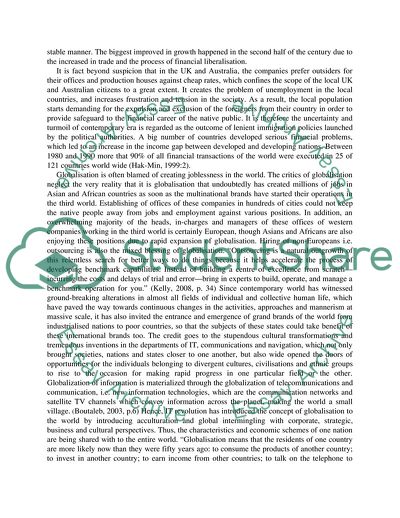Cite this document
(Strengths and Weaknesses of Globalization Essay, n.d.)
Strengths and Weaknesses of Globalization Essay. https://studentshare.org/macro-microeconomics/1744838-critically-analyze-the-main-strengths-and-weaknesses-of-the-term-globalization-with-reference-to-one-everyday-life-example
Strengths and Weaknesses of Globalization Essay. https://studentshare.org/macro-microeconomics/1744838-critically-analyze-the-main-strengths-and-weaknesses-of-the-term-globalization-with-reference-to-one-everyday-life-example
(Strengths and Weaknesses of Globalization Essay)
Strengths and Weaknesses of Globalization Essay. https://studentshare.org/macro-microeconomics/1744838-critically-analyze-the-main-strengths-and-weaknesses-of-the-term-globalization-with-reference-to-one-everyday-life-example.
Strengths and Weaknesses of Globalization Essay. https://studentshare.org/macro-microeconomics/1744838-critically-analyze-the-main-strengths-and-weaknesses-of-the-term-globalization-with-reference-to-one-everyday-life-example.
“Strengths and Weaknesses of Globalization Essay”. https://studentshare.org/macro-microeconomics/1744838-critically-analyze-the-main-strengths-and-weaknesses-of-the-term-globalization-with-reference-to-one-everyday-life-example.


